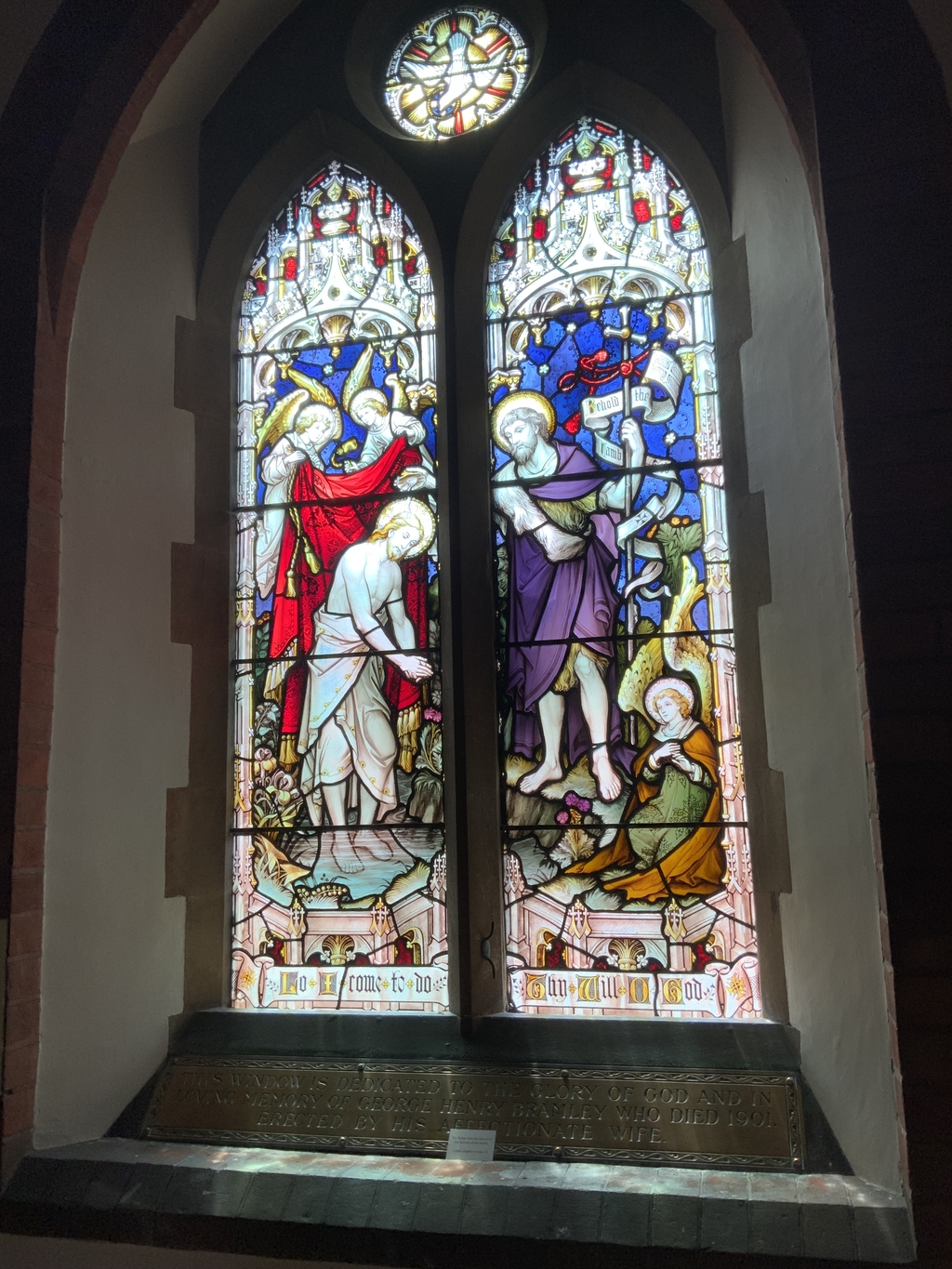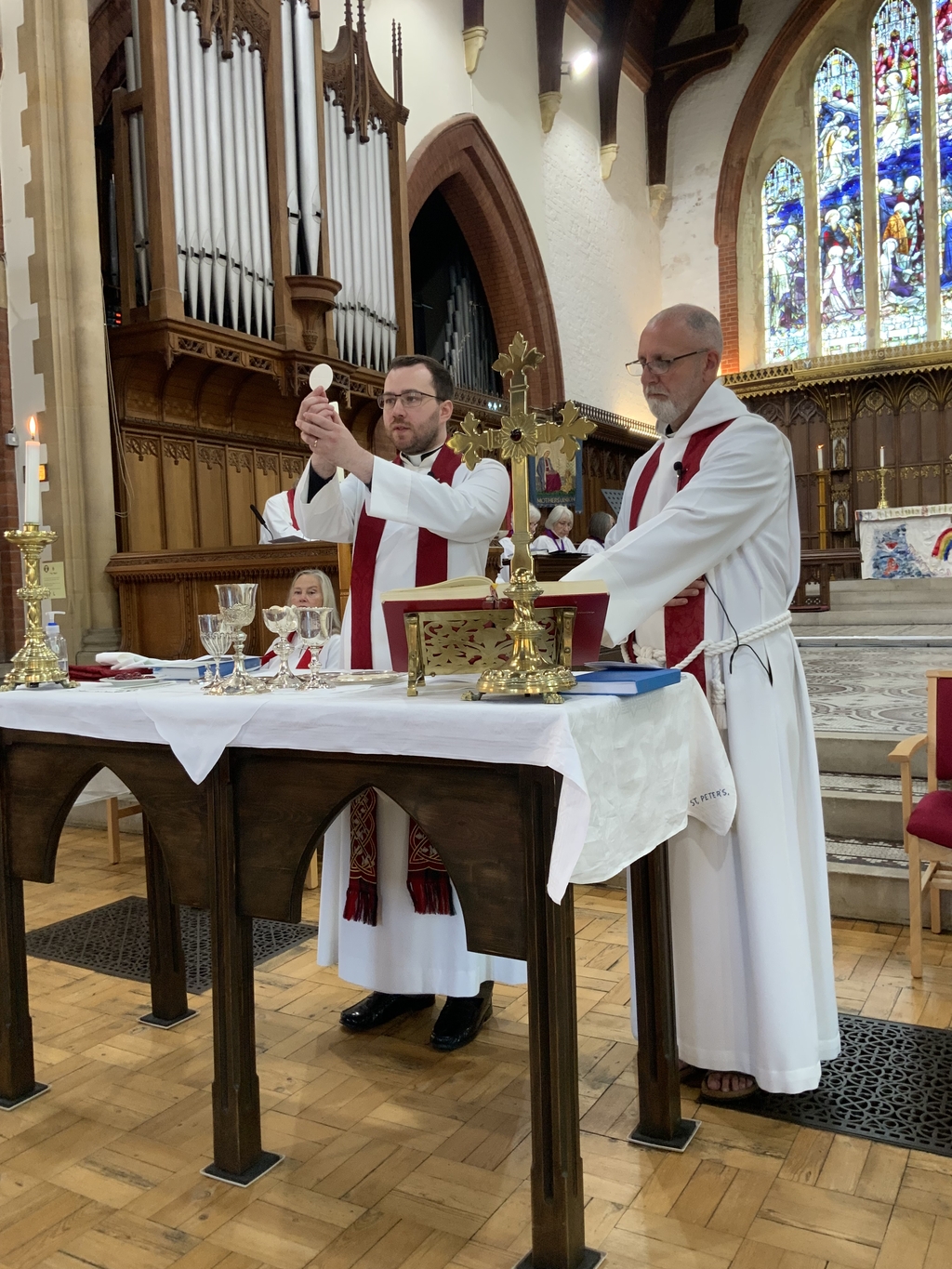In our New Testament Readings today we find two different aspects of the Last Supper. The meal and foot-washing. These mirror two aspects of our faith: The Eucharist and our action in service to God and one another. We are fed and loved and it is through that love that we can, in turn, reach out and feed others, both physically and spiritually.
Corinthians: St. Paul gives us a first account of the Eucharist when writing to the church in Corinth. He writes to them sternly as they are divided in worship and he is horrified to hear what the church is getting up to! Some members are having a party in church! They are bringing in food but not sharing it and so some are going home hungry. Others are being carried out as they are too drunk to walk!
Paul spells out to them, and us, why the Eucharist is centrally important and writes that he received his instructions from Jesus himself. He gives an account of the Last Supper: On the night he was betrayed he took bread and said ‘this is my body broken for you’. He then took the cup and said ‘this is my blood, shed for you, do this in remembrance of me’
As we reenact the Last Supper by sharing in the Eucharist, the bread and wine symbolically become our salvation until we join in the heavenly banquet of Jesus second coming. The Eucharist is about coming together and following in Jesus’ footsteps as servant king, in service to others. We learn more about this in our Gospel Reading.
John: unlike the other Gospels, does not tell us about the nourishment aspect of the Last Supper but the action of Jesus washing his disciples feet. It was a servant’s job to wash the mud, dirt and dung from feet. Peter questions Jesus doing this menial task. Jesus replies ‘you do not realise now what I am doing, but later you will understand’. The disciples did not understand, even at the end of Jesus earthly ministry, what Jesus was about. They had not yet experienced Jesus’ death and resurrection and had yet to be overwhelmed by the Holy Spirit at Pentecost. Peter did not understand and certainly Judas and the others did not grasp that Jesus was not going to be the military king that the Jews expected the Messiah to be. He had not come to free them from Roman occupation. Instead, he demonstrated his servant kingship by washing their feet.
There was then, as now, a huge gap between the values of the world and and the values of Jesus. In foot-washing Jesus is symbolically cleansing us all from our wrongdoings. It is about holiness (us being set apart as disciples) as much as hygiene. It expresses symbolically the new covenant Jesus brings of repentance, forgiveness, turning about and living in love and faith. No wonder Peter asks to be washed all over!
After foot-washing Jesus asks: ‘do you understand what I have done for you? Now that I, your Lord and Teacher have washed your feet, you also should wash one another’s feet’
Jesus’ new commandment : ‘Love one another. As I have loved you, so you MUST love one another. By this everyone will know that you are my disciples, if you love one another’. Jesus teaches us how to enter into a new relationship with God, one rooted in love not fear. As we are loved and forgiven we are in turn commanded to love and forgive one another. This is not easy by any means but we are required to follow the pattern that Jesus gave us in both the Eucharist and foot-washing to enter into kingdom living.
We do, however, have the gift of the Holy Spirit dwelling within us, the helper, to empower and enable us to love even those who on a human level we find difficult to like.
Angela Stewart (lay minister).











